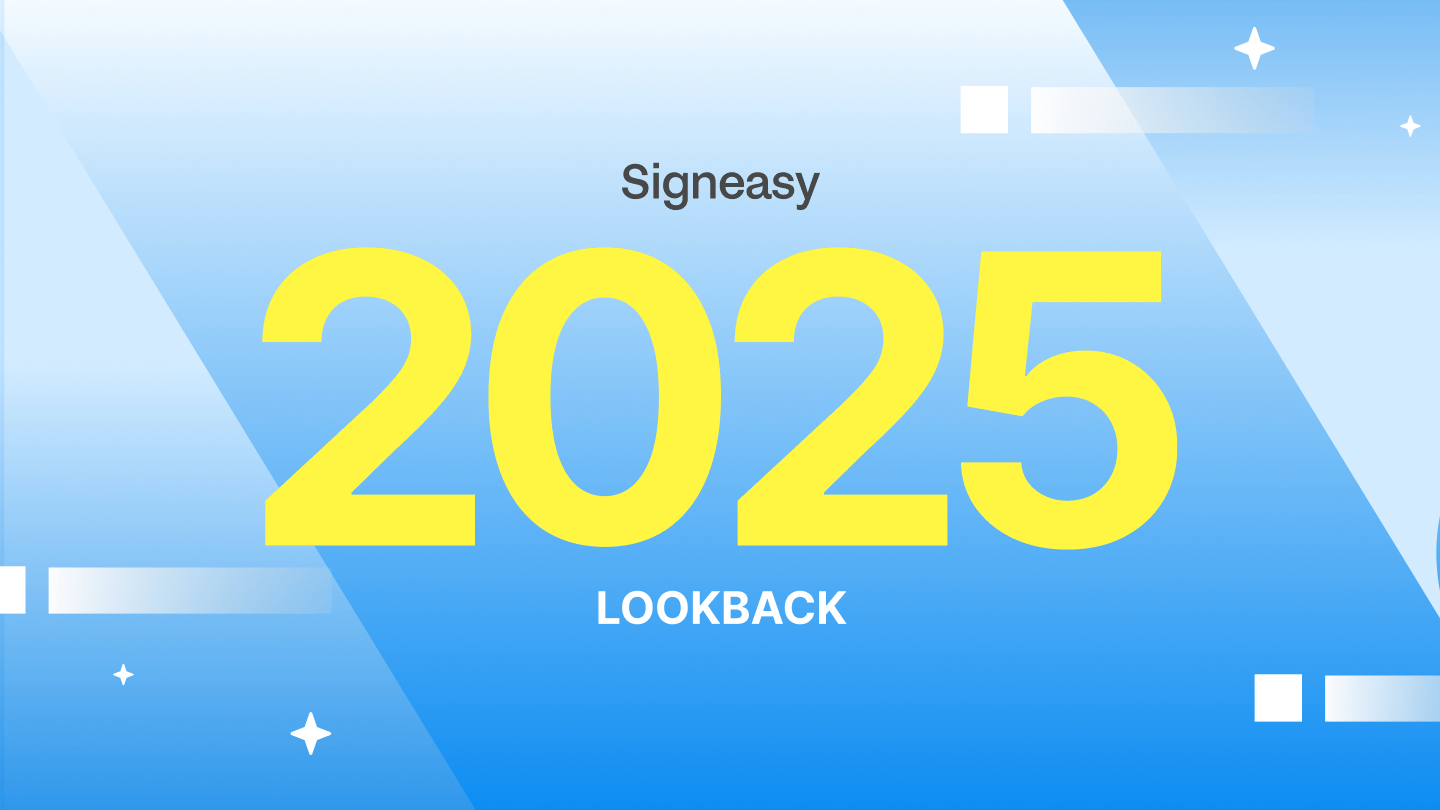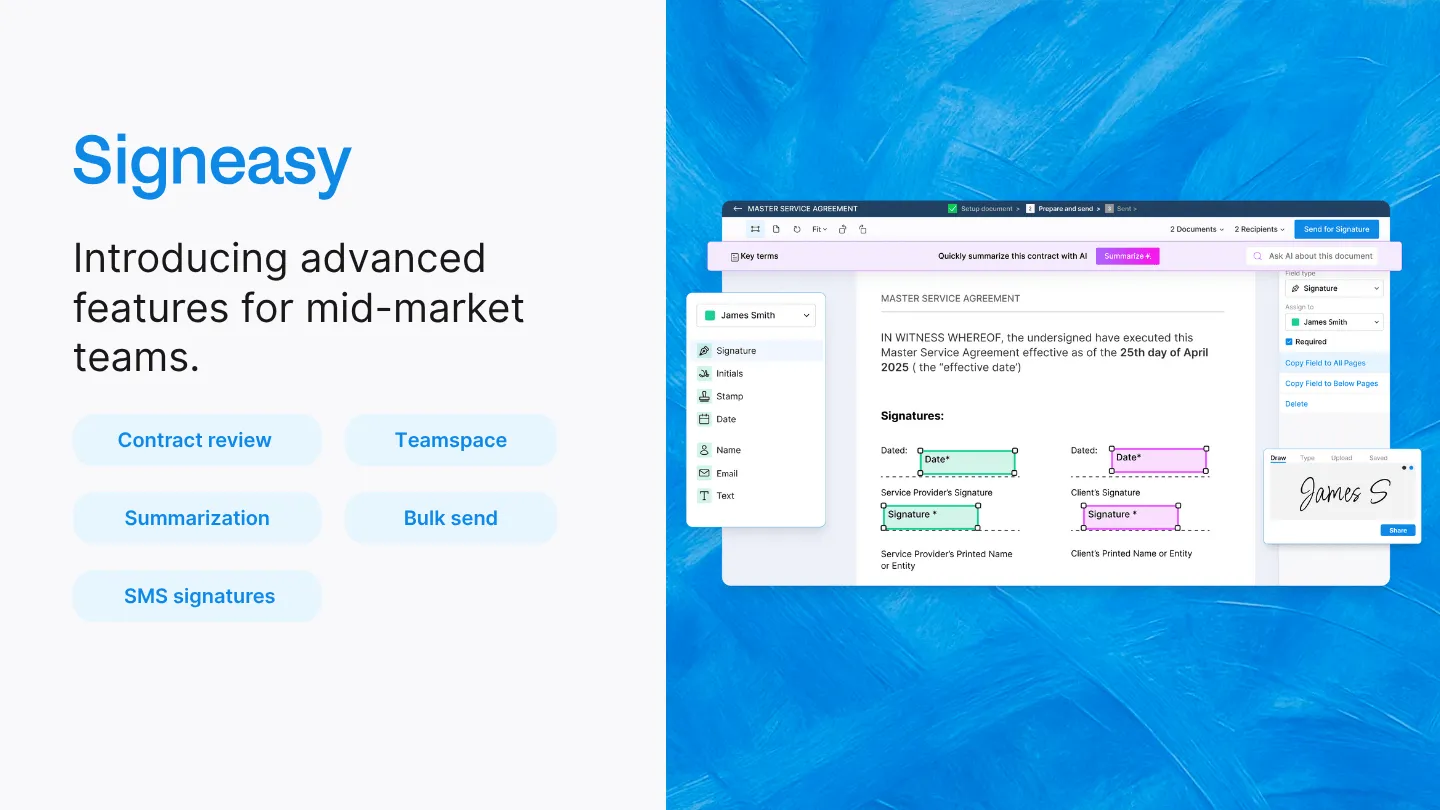The healthcare industry has always been burdened with volumes of paperwork—documents involving consent forms, patient intake, procurement, contracting, and medicare billing. Many healthcare players have realized that manual, paper-based processes do not just slow down business but also take away time and attention better spent on higher-value tasks, such as patient interaction.
The modern healthcare consumer expects a fully digital personalized experience that falls perfectly in line with other aspects of their lives. This demand for intuitive experiences has propelled healthcare companies to digitize and streamline their workflows internally and externally.
The quickest and easiest way to cut out time-consuming paperwork is to adopt an eSignature solution like Signeasy. By taking document workflows online, you’ll also do away with clunky tools like scanners, fax machines, and hard-copy paper.
To adopt eSignature technologies, healthcare providers require a solution that complies with the Health Insurance Portability and Accountability Act (HIPAA).
Signeasy is thrilled to announce that we have updated our policies, procedures, and infrastructure to support our customers around their need to be HIPAA compliant. We had our assessment completed by independent third party auditors Dansa D’Arata Soucia LLP, to ensure compliance to Health Insurance Portability and Accountability Act (HIPAA) Security Standard. Collaborating with Vanta and using their continuous security monitoring platform helped us meet our audit requirements.
What is HIPAA compliance and why is it important
Healthcare providers collect and store a large amount of critical customer data, and that requires them to follow strict guidelines about how and where information can be kept and transferred. The Health Insurance Portability and Accountability Act of 1996 created guidelines and rules for the movement of patient data, which are followed by technology providers catering to the healthcare industry.
When said of a software platform, HIPAA compliance generally means the tool is able to protect patients’ information as it performs its main function.
How does Signeasy support HIPAA compliance
Signeasy meets HIPAA compliance requirements by controlling the signing process and ensuring all information is authenticated and remains both private and secure.
- A complete, court-admissible audit trail accompanies each document.
- For data at rest, all our cloud storage is encrypted using an industry standard AES-256 encryption algorithm.
- For transit, we use TLS 1.3 (this can be checked in Developer tools in Chrome or Edge under Security) which is the latest version of the transport layer security protocol.
- Signed documents have a downloadable completion certificate with an audit trail including timestamps, file checksums and recipient identification data (email address, IP address of device).
- Advanced signer authentication with an additional layer of verification via an OTP sent to the signer’s mobile number ensuring validity of the authorized signers.
How businesses benefit from Signeasy’s HIPAA compliance
With this milestone, healthcare providers managing protected health information (PHI) can take full advantage of Signeasy’s electronic signature capabilities.
Signeasy now has the ability to sign a Business Associate Agreement (BAA) with any of our customers in the healthcare industry. Under a BAA we are bound to operate specific controls to protect your electronic protected health information (ePHI). Organizations must enter into a BAA before giving access to or disclosing any PHI to Signeasy.
If you are an existing healthcare customer of Signeasy and would like to expand our services to parts of your business which handle ePHI, please contact your Account Manager.
If you are new to Signeasy and are interested in signing a Business Associate Agreement with us, please contact sales@signeasy.com. Our solution experts will get in touch with you to help you adopt eSignatures into your workflows easily.










